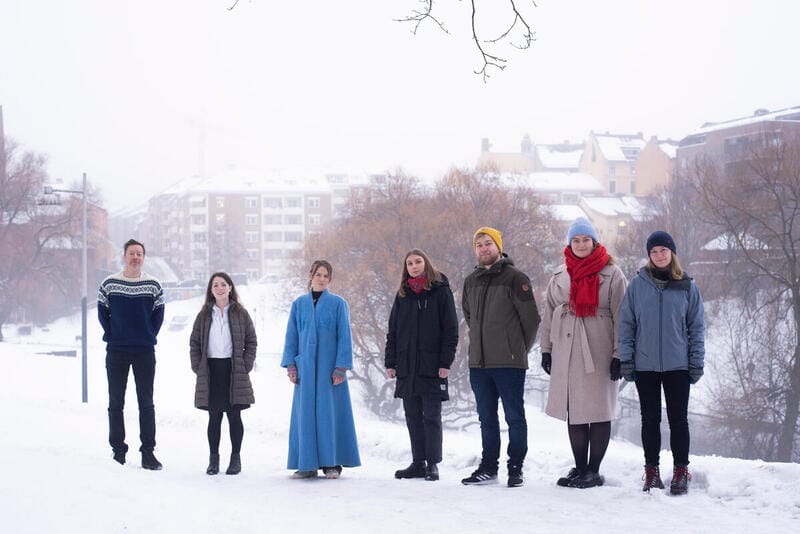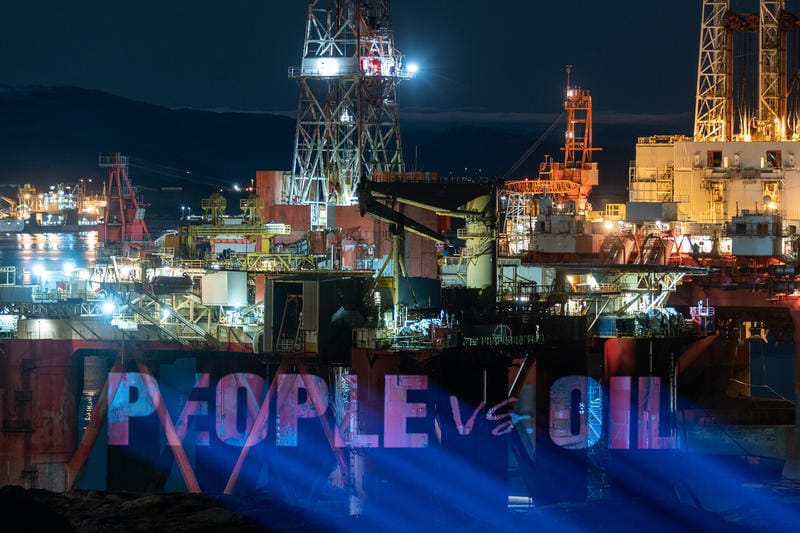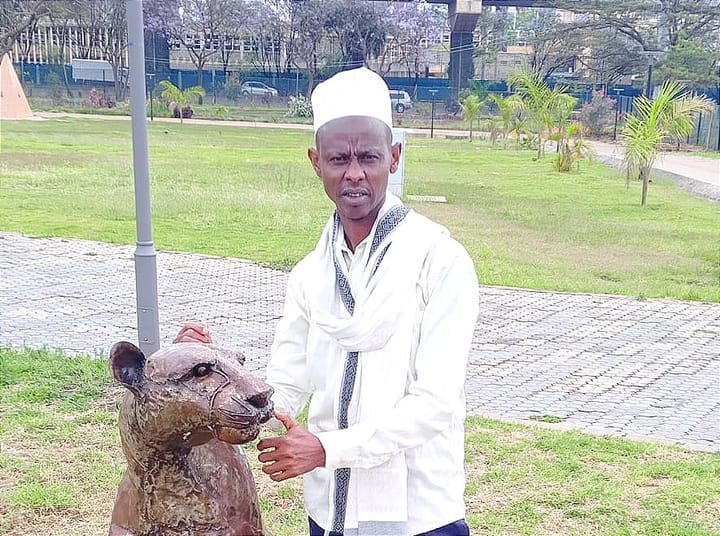The next climate lawsuits at the European Court of Human Rights are nearly as important as the first

Climate activists had major cause to celebrate in the spring when the European Court of Human Rights (ECHR) accepted the arguments of a group of older Swiss women known as the KlimaSeniorinnen that their government’s failure to do enough to cut its national greenhouse gas emissions was a clear violation of human rights and ordered policymakers to up their game.
Even the rejection of two other climate cases - one brought by a group of Portuguese young people and another by a former French mayor - considered alongside the KlimaSeniorinnen didn’t dampen the mood.
National litigators have jumped at the chance to apply this legal precedent. A Polish climate case supported by ClientEarth, one of five first filed in 2021, that is now at the country’s Supreme Court is one of the first planning to use it in practice.
But the decision itself has led to accusations of judicial overreach both in Switzerland and elsewhere.
Council rejection
In late August, the Swiss Federal Council rebuffed the ruling. While it acknowledged the importance of the underlying European Convention on Human Rights, the government said the court’s interpretation was too “broad” in extending it to climate change and in accepting a complaint from an organisation. And it claimed it was already doing enough to cut emissions, seemingly attempting to sidestep the issue of compliance. Switzerland’s human rights institution was disappointed with the move.
With the ruling now left with the Council of Europe’s committee of ministers to enforce, it’s easy to forget that these three cases were just the pioneers; another seven complaints were adjourned.
Not all these lawsuits are still on the books. One youth-led case, supported by Climate Action Network (CAN) Europe, about the Energy Charter Treaty was recently dropped because several EU member states and the EU itself quit the agreement.
But others are now progressing. The first claimant in this second wave of lawsuits to hear from the court was a disabled Austrian man in his 40s surnamed Müllner who has a temperature-dependent form of multiple sclerosis called Uhthoff's Syndrome. This means his symptoms get worse with heat. Above 25°C, he is reliant on a wheelchair, and above about 30°C, he can no longer push it by himself.
Like the Swiss women, Müllner argues that he is particularly vulnerable to heatwaves, which are becoming more frequent and severe with global warming, so the climate crisis already has concrete negative impacts on his life.
He claims his government’s failure to act on climate change breaches his human right to family and private life under article 8 of the European Convention on Human Rights, as well as his procedural rights.
“On the one hand, yes, this is very exciting. On the other hand, it's full of problems.”
The Austrian case was the first of this bunch to be filed, so it makes sense that it would be next in line. Michaela Krömer, the main lawyer in this case, notes that it has been granted priority status.
But Corina Heri, a postdoctoral researcher at the University of Zurich, says it is also a useful opportunity to clarify the court’s first positive climate judgment. “On the one hand, yes, this is very exciting. On the other hand, it's full of problems.”
Even among those who welcomed the spirit of the KlimaSeniorinnen ruling, there has been concern about its legal reasoning. In a recent article for Climate Law, Andreas Hösli and Meret Rehmann said they do not find it all “convincing”.
In the KlimaSeniorinnen judgment, the court denied victim status to four individual claimants but accepted that of the organisation - a big shift for the court. Hösli and Rehmann say this may have happened because the court was “fearful of opening the floodgates to a plethora of climate change cases brought by individuals”.
The acceptance of an organisation was in itself criticised by the Swiss government and others. And on the flip side the court set a very high bar for individuals to make climate-related claims although it “appears to leave the door open to granting victim status in cases where an individual applicant can be shown to be suffering from a serious, heat-affected, medical condition”, say Hösli and Rehmann.
Heri agrees, adding that the Müllner case refers to a very specific heat-aggravated disability. “I can't imagine the court would say to this applicant: ‘You have to go out and find people in a similar situation and form an association and then claim your rights’. My hope would be the court would find that he has individual victim status, and then create a path for other cases to cross that very high threshold.”
If Müllner does not succeed, it might show that the threshold is “impossibly high”, says Heri, although claimants would then at least know where they stand. “For all of its length, KlimaSeniorinnen is not clear about the ways in which the actual vulnerability of the applicants shapes the ultimate outcome of victim status and standing. There's potentially a lot of people who are affected by climate change. That doesn't mean they're not really affected. That doesn't mean their cases are abstract. It just means that this is a problem that's really, really big.”
What Müllner is asking for is similar to the KlimaSeniorinnen. But Austria has different climate targets that are intertwined with the EU and its own regulatory framework, so the court may take a different approach even if it agrees that he is a victim.
Heri would also like more clarity on how much discretion the state has to fulfill the judgment.
'Worth the wait'
The second case moving forward has been brought by Greenpeace Nordic, Young Friends of the Earth Norway and six individual young activists against the Norwegian government, seeking to prevent the expansion of fossil fuel extraction in the Arctic.
They want the court to rule that the government's decision to grant oil exploration licences in the Barents Sea violated articles 2 and 8 of the European Convention on Human Rights - the rights to life and private and family life - as well as article 14 protecting people against discrimination.
Norway tried to have the case declared inadmissible, arguing that Russia’s invasion of Ukraine justified the search for more oil and gas. But it failed.
Richard Harvey, legal counsel for Greenpeace International, helped build the domestic Norwegian case which began way back in 2016, beefing up the human rights side of the argument. He says it's “been worth the wait”.
This case tries to get over the victim status barrier by having both organisations and individuals on the docket. Three are Sámi, the only indigenous group recognised by the Council of Europe, and it is they who are claiming discrimination in the face of an erosion of their historical traditions and culture.
One potential problem is that the individuals did not personally file the underlying Norwegian lawsuits. The Norwegian government is trying to argue that this means they did not exhaust all domestic remedies first before bringing their case to the ECHR - a hurdle that tripped up the Portuguese youth.
But Harvey counters that they were all working for, or effectively represented by, these groups and there was no dispute about the rights of the associations to present their cases in Norway, so “there was no need for them to be there”. “I think we've got a very strong argument that our associations have passed the KlimaSeniorinnen test,” says Harvey. But “there will be a big question mark over whether the individual claimants pass the very high bar that they put in place”.

If they pass the procedural test, it will be the first time the court has to properly consider the rights of children and young people when it comes to the climate crisis. “That's kind of a big elephant in the room,” says Heri. “The first judgment is about elderly women, but obviously, there's a lot more vulnerabilities that need to be talked about.”
Unlike the Austrian case, the claimants do not have extreme health issues that make them stand out as victims; they will have to rely on their fears for the future. “It's a different standard of proof that we'll be looking for when it comes to the psychological impacts on the rights of present and future generations,” says Harvey.
A big part of this case is the extent to which governments have to consider scope three emissions from fossil fuels - that is the greenhouse gas emissions from burning as well as extracting them - and when. Because Switzerland does not do any oil or gas or coal mining and drilling, the scope three issue did not previously arise.
Norway’s Supreme Court said these would be considered when companies apply to extract the oil rather than at the licencing stage. “We took the position that there has never been an instance where a license to explore was followed by a refusal of a license to exploit,” says Harvey. “The end result is always the same, and there's far less scrutiny at the exploitation lesson level than there is at the initial licensing for exploration.”
"KlimaSeniorinnen is open-ended enough that a chamber could reach a lot of different outcomes in these cases"
Müllner, Greenpeace International and Friends of the Earth Norway submitted their responses to the court over the summer, as did the Norwegian government.
Both of these cases are being examined in the ECHR’s second chamber. That means no repeat of the big public hearings that gave the KlimaSeniorinnen and the Portuguese youth case against 32 countries such weight and media attention, although there may be internal oral hearings.
And they’ll be considered by three rather than 17 judges. The Austrian case has Tim Eicke, the UK judge who was the only dissenter in KlimaSeniorinnen.
What happens next is very much up for grabs. “KlimaSeniorinnen is open-ended enough that a chamber could reach a lot of different outcomes in these cases,” says Heri.
And the decisions, like the first one, will have real political consequences - whether that means actually boosting climate action or, at worst, the collapse of the court's authority and the degradation of human rights across Europe. “KlimaSeniorinnen was huge," says Heri. "It got a lot of public attention, and there is a risk that these later cases won't get the same level of attention, which I think, given the vagueness of KlimaSeniorinnen they definitely deserve.”

